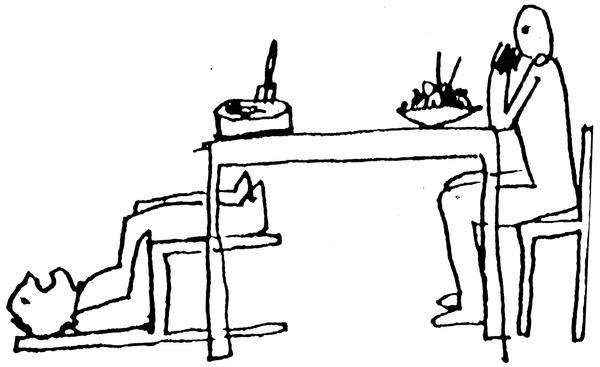Several years ago (I don’t remember when, exactly), the mainstream media concluded that Americans no longer possessed the social wherewithal to gather unaided for Thanksgiving. According to this new journalistic consensus, which seemed to arise without cause and all at once, the hybrid secular-spiritual national holiday declared by President Abraham Lincoln in 1863 had grown too fraught to be left to amateurs, to ordinary people and their families, who now required expert help in the form of countless columns and articles if they were to sit together without incident eating cornbread stuffing and watching football.
The premise of these admonitory pieces about how to converse with friends and relatives around a pie-and-turkey-laden table is that Americans are a fragile people, individually and collectively. Except when we are forced to by the exigencies of attending annual festive meals, we shrink from the perils of being in mixed company, and when we find ourselves in it despite ourselves, we run the risk of freaking out.
In 2017, The Washington Post attempted to prove this gloomy thesis in a scientific-seeming feature: Politics really is ruining Thanksgiving, according to data from 10 million cellphones. The piece described a dubious feat of research by a professor in California based on the work of a creepy firm called Safegraph, which had amassed “over [sic] 17 trillion location markers from 10 million smartphones in November 2016.” What did this immense, unsuspected surveillance effort, bankrolled by heaven only knows whom, purport to show? That when Thanksgiving celebrants mingled across party lines—the cellphone owners were ideologically indexed by their voting precincts—their gatherings tended to scatter 20 minutes to half an hour earlier than feasts attended by folks with the same views.
Like any other literary genre, the Battleground Thanksgiving articles share certain tropes and themes. They have a ritual villain, for example. It’s typically a cranky older relative hailing from a roughhewn heartland city, who crudely dismays his more enlightened relatives with his blunt views on race or Trump or Covid. In an especially patronizing piece published recently in Forbes, this central-casting jerk is an “Uncle Tim from Topeka.” In a similar Washington Post piece from last week, “chatty grandparents” seem to be the culprits. Notably, the offending party or parties is never the reader of the article, who is presumed—because he is a subscriber—to hold impeccable opinions drawn straight from the pages of the journal in question.
